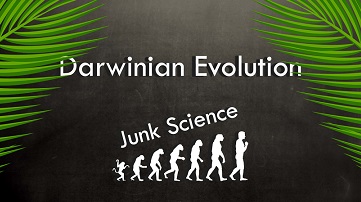 Zionism is like cancer and an “obscenity of
Judaism and the Christian religion,” stated a female audience member during
a March 11 film screening event at Bethesda, Maryland’s St. John’s Norwood
Episcopal Church. Her comments typified the sentiments of this year’s Voices
from the Holy Land film series (VFHL), an annual series bringing together
rabid Israel-haters in the Washington, DC area.
Zionism is like cancer and an “obscenity of
Judaism and the Christian religion,” stated a female audience member during
a March 11 film screening event at Bethesda, Maryland’s St. John’s Norwood
Episcopal Church. Her comments typified the sentiments of this year’s Voices
from the Holy Land film series (VFHL), an annual series bringing together
rabid Israel-haters in the Washington, DC area.
The audience member, who declared that “we must recognize Zionism as an enemy, and then we love this enemy” as Jesus loved his enemies, was in sympathetic company at St. John’s Norwood. Father Sari Ateek, who introduced himself to this author during the event, presides over the congregation and is the son of the Palestinian Anglican priest Naim Ateek, a leader of the anti-Israel Sabeel Ecumenical Liberation Theology Center. Ateek Senior was notable for his anti-Semitic rhetoric against Israel, as manifested in his drafting of the 2009 Kairos Palestine declaration; his son correspondingly belongs to Friends of Sabeel North America (FOSNA).
Other Episcopalians, such as Thomas Johnson from the Episcopal Diocese of Washington, DC’s Companion Diocese Committee—Jerusalem (CDCJ), one of the VFHL organizers, also attended. He noted that several Christians, including himself, were members of another organization involved in organizing the VFHL, the Washington, DC chapter of the not-so-Jewish but radical Jewish Voice for Peace (JVP). A non-Jew from this organization known for “Jew-washing” antisemitism against Israel, Liana Smith, moderated the event and stated that in JVP “we always try to put Palestinian voices first.”
Another CDCJ member, James C. Cobey, an orthopedic surgeon who shared the 1997 Nobel Peace Prize for his work to ban landmines, wore his Palestinian flag lapel pin. Episcopalian Steve France, who like Ateek is also in Washington, DC’s FOSNA chapter, compared Black Liberation Theology with Palestinian Liberation Theology. With respect to American racism, white American oppressors are morally the “Israeli Zionists in that picture and we are doing the same thing all over again with the Palestinians,” he slanderously claimed.
One of the documentary screenings, Gaza: A Gaping Wound, about Israel’s 2014 military campaign against the Hamas terrorist organization ruling the Gaza Strip, elicited similarly shocking bias. One audience member asked if a house destroyed by Israeli aircraft shown in the film had contained anti-Israeli “resisters,” while another audience member condemned American aid to Israel. She stated that the “blood of the Palestinian people is on our hands, because we enable this to happen,” and called for Boycott, Divestment, and Sanctions (BDS) against Israel. Imam Tarif Shraim from Potomac, Maryland’s Islamic Community Center, who gave the event’s opening invocation, shared similar pro-BDS sentiments.
The opening of the April 14 screening of Jews Step Forward in Washington, DC’s National Cathedral was no better. A woman’s fact-free introduction erroneously claimed that “present day Israel-Palestine is the birthplace of all three major Abrahamic religions.” This absurdity ignores that Arab Islamic invaders in the seventh century conquered the Holy Land; the ancestral homeland of the Jews, where Christianity has indigenous Jewish roots.
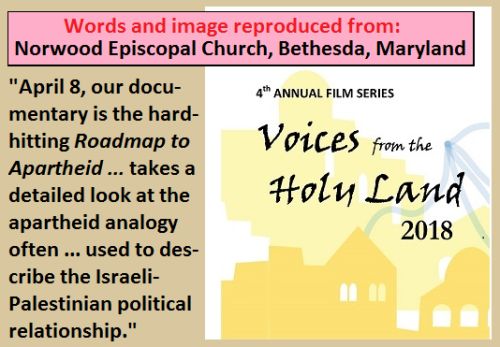 Echoing prior VFHL comments, she stated that
“our tax dollars support the obviously imbalanced status quo.” Additionally,
for Palestinians, “life under occupation is hell.” Yet under Israeli
military rule following the 1967 Six Day War, they experienced enormous
development and one of the world’s highest growth rates.
Echoing prior VFHL comments, she stated that
“our tax dollars support the obviously imbalanced status quo.” Additionally,
for Palestinians, “life under occupation is hell.” Yet under Israeli
military rule following the 1967 Six Day War, they experienced enormous
development and one of the world’s highest growth rates.
The woman introduced Reverend Ben Trawick from Springfield, Virginia’s Grace Presbyterian Church and noted that his brother Robert is in the Israel/Palestine Mission Network (IPMN) of the dying Presbyterian Church USA (PCUSA). Reflecting PCUSA’s animus, IPMN has a vicious history of antisemitism, including promotion of Hezbollah, and once received an endorsement from the American white supremacist David Duke for IPMN’s screed Zionism Unsettled.
Like Steve France previously, Trawick in his invocation placed the Jewish state of Israel and its self-defense in the context of long series of historic evils. People have “placed our faith in boundary walls and border walls, in tribalism, nationalism, militarism, sectarianism, in segregation, separation, suppression, repression, and oppression,” he stated. He claimed that this was an
atavistic error in every nation, every location, every generation, a fresh iteration: the apartheid of South Africa, the Trail of Tears, the trees of the American South with their strange fruit, the German concentration camps, the Japanese internment camps….We should recognize by now both symptoms and sins as we do in the present conflict in Israel-Palestine.
Rich Forer, one of the Jews who appeared in the film, addressed the audience after the screening with his one personal story of how he abandoned Zionist Jewish self-determination for a John Lennon vision of the Middle East. “As soon as I recognized that I had been dehumanizing the other, my own humanity was restored,” Forer stated concerning the Palestinians, the “biggest relief I ever experienced.” He agreed with VFHL organizer Paul Verduin, a local FOSNA and IPMN member, who advocated that “anti-Zionist or post-Zionist advocates of human justice” seek a “democratic one-state solution” for Arabs and Jews in the Holy Land.
Forer claimed that there was no justification for Jewish self-defense measures against jihadist threats such as Israel’s security barrier. This simply “enables Israeli propagandists to paint Arabs or Palestinians as demons.” Israeli children “are taught that there are people on the other side of the wall that you never see, they want to kill us,” he stated as if this barrier had not saved lives from real terrorist dangers.
For the Holocaust-inverting Forer, Palestinians were the real victims who suffered under Nazi-like Jews. An American Jew in the audience argued that Washington, DC’s Holocaust Museum had “not recognized the parallels with the Palestinians that this film would bring out.” Forer responded: “The Jewish community would go crazy right now if the suffering of the Palestinians was integrated into the Holocaust museum.” The Jewish community, he charged, “even makes the Holocaust a religion; they are just not emotionally prepared for recognition of the suffering of the Palestinians.”
Forer accordingly noted how he appeared to be the very embodiment of anti-Semites’ self-hating Jew:
I have gotten emails from a number of people saying that I changed their life. Sometimes they say I was an ant-Semite until I listened to your interview or I read your book, you showed me that I can’t judge, put all Jews in the same basket.
The next day, about eight people gathered in the basement common room of southwest Washington, DC’s Westminster Presbyterian Church for another Sunday afternoon film screening. Near baskets filled with condoms proclaiming the church’s LGBT-affirming adherence to the “rubber revolution,” Cobey introduced the event in by noting a table with Palestinian olive oil for sale. This oil is “nutritious and makes you more Palestinian,” he stated, and observed that he always inserted in the Prayers of the People in his Episcopal Church services a prayer for the “Palestinians to be free of the apartheid government of Israel.” At the end of the event, he gave this author a “Free Palestine/Boycott Israel” bumper sticker.
A Muslim imam gave an invocation including the claim that the “Holy Land has been invaded, occupied, and colonized by European Zionists. The sacred place is disrespected and violence has been waged.” He added that “Palestinians are now facing existential threat and going through genocide.” Like the VFHL literature, he listed the radical, Hamas-supporting group American Muslims for Palestine (AMP) among groups such as Code Pink and JVP as struggling for Palestinians, for “apartheid is sinful.”
Thomas Getman, Cobey’s fellow CDCJ member who has joined FOSNA’s advisory board after heading the Jerusalem office of the anti-Israel Christian charity World Vision, clearly rejected the Jewish state. In response to this author’s questions following the film, Getman implied that all of the former British Palestine Mandate should be one state of Arabs and Jews, and then “if it’s one person, one vote, as it should be, it can no longer be a Jewish state.” He added: “A Jewish state is a violation of church and state,” as if the Jewish national home were a theocracy and the U.S. Constitution’s First Amendment were a universal law.
Despite numerous peoples having nation-state homelands around the world, Verduin likewise considered a Jewish state “very anachronistic.” He explained: “A one God-state, or a one-race state, or a one-ethnicity state, it just doesn’t fit very well, does it, in our 21st century world,” ignoring the numerous Muslim Arab states that fit this description. Denying Jewish roots to Israel, he added that the “settler project of Israel is clearly a manifestation of good-old fashioned Western colonialism.”
The following Sunday, April 22, Westminster Presbyterian Church screened Censored Voices, in which Israeli Six Day War veterans make unsubstantiated accusations of Israeli atrocities during that war. Anti-Israel playwright Pamela Nice introduced the film with the myth that the book text that formed the film’s basis suffered 70 percent censorship when the book appeared immediately after 1967. Verduin noted that Palestinian-American Jamal Najjab, who, like Johnson, is a “member of Jewish Voice for Peace, although not Jewish,” would lead with Nice the discussion following the screening.
Westminster Presbyterian’s homosexual Reverend Harry Stock completed the event introduction with an invocation praising multicultural relativism. He prayed that “we ask your forgiveness, divine God,” for “we divide ourselves in so many ways, especially by our religions,” as “some call you as Allah, Yahweh, Buddha, Christ, Gaia, Goddess, Great Spirit, or Creator.” Yet “we have learned that a universal theology is impossible, but we believe that if we come together as one people, honoring and nurturing all faith journeys, a universal experience of peace and love is not only possible, but necessary.”
Yet Jews would have felt little love in the post-film discussion. One first-generation Arab-American woman audience member stated that “I feel as heavy, sad, angry, and so many other emotions seeing this as I do whenever I see a film about the Holocaust.” After this defamatory equivalence between Israelis and Nazis, another audience member falsely claimed that Israelis have recently engaged in “indiscriminate shooting of the Palestinians” in Gaza. With equal ignorance, Johnson stated that in “every one of these conflicts, Israel has been on the offense, has been the aggressor, has jumped into using war as the way, or armaments, as the way to get ahead of the game.”
Only Najjab offered a touch of realism that did not demonize Israel. For Palestinians after 1967, “it was sort of a benign occupation in the beginning, it wasn’t that bad,” he noted. Only after Israeli land confiscations began under Prime Minister Menachem Begin in the late 1970s did the Palestinians protest Israeli rule.
Zionists of all backgrounds should be aware of these events in the hallowed halls of Washington, DC’s houses of worship. Particularly troubling is the Episcopal Diocese, where Ateek, Cobey, France, Getman, and Johnson appear to go unchallenged in their desire to destroy Israel. Thinly veiled hate against long-persecuted Jews, not interfaith harmony, is what these churches are preaching.
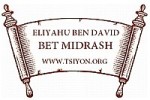
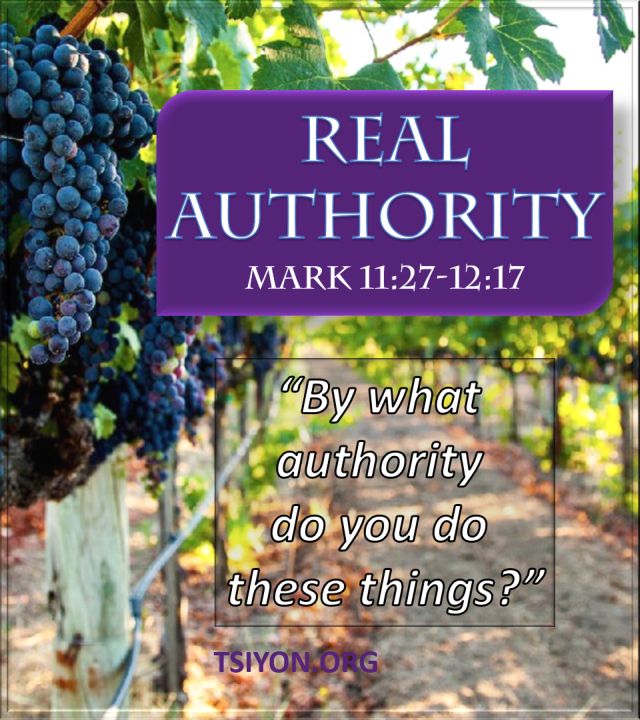
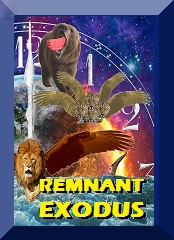

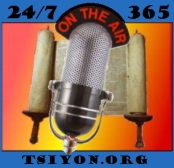
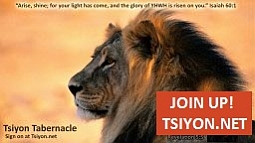
 As
I write this newsletter, the world is amazed by the outcome of the historic
meeting between US president, Donald Trump and the leader of North Korea,
Kim Jong-un. If what has come out of this meeting stays on track, it will
significantly change the future for millions of people. It is not my purpose
now to give you a news report on the historic event - only to note this
current example of my present theme, real authority - and to observe that
great leadership can produce great results. Yes, I'm observing how Donald
Trump, a flawed human being, was nevertheless a prepared vessel, and was put
into office from above, to change the course of history. As Daniel wrote:
As
I write this newsletter, the world is amazed by the outcome of the historic
meeting between US president, Donald Trump and the leader of North Korea,
Kim Jong-un. If what has come out of this meeting stays on track, it will
significantly change the future for millions of people. It is not my purpose
now to give you a news report on the historic event - only to note this
current example of my present theme, real authority - and to observe that
great leadership can produce great results. Yes, I'm observing how Donald
Trump, a flawed human being, was nevertheless a prepared vessel, and was put
into office from above, to change the course of history. As Daniel wrote: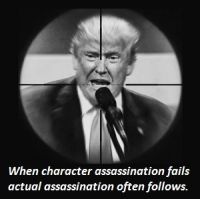 The
more things change the more they stay the same.
The
more things change the more they stay the same. 